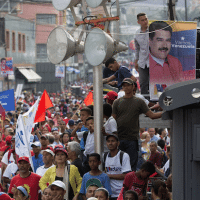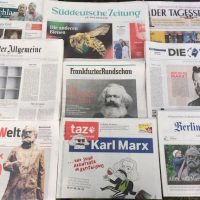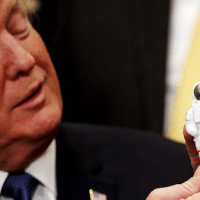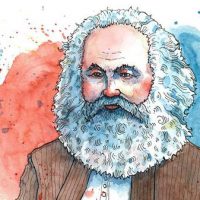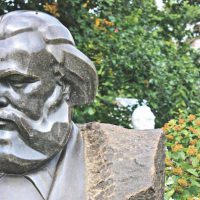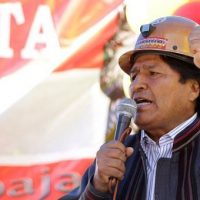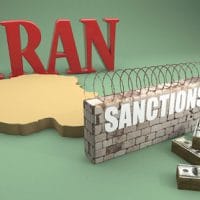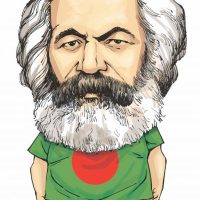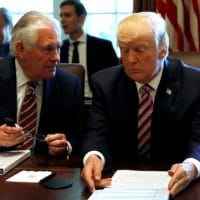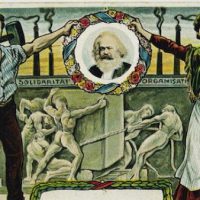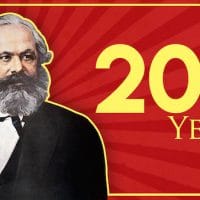-
Chavismo will be socialist or it will cease to exist
If there was something Hugo Chavez longed to build in Venezuela, it was a transition to 21st century socialism, writes Marco Teruggi.
-
On the eve of Venezuela’s elections, the U.S. empire isn’t sitting idly by
“I don’t see why we need to stand by and watch a country go communist due to the irresponsibility of its people. The issues are much too important for the Chilean voters to be left to decide for themselves.” — U.S. National Security Advisor Henry Kissinger, 1970
-
Ten Marxist ideas that define the 21st century
No matter how hard the propaganda machine has tried to refute Marx’s analysis, his ideas have stood the test of time.
-
Palestinians bury their dead 70 years on from the Nakba
PALESTINIANS buried their dead yesterday as thousands of people took part in protests to mark the 70th anniversary of the Nakba which accompanied the foundation of Israel.
-
200 Years later, why Marx remains relevant in an Indian context
The year 2018 marks the bicentenary of Karl Marx, a philosopher and thinker who is partially understood without being read by his critics.
-
“Bloody Gina,” the CIA, and the Senate
Why Gina Haspel’s confirmation hearing was a democratic farce.
-
Trump and corporate America are dead serious about plans to conquer outer space
Like any military effort, the establishment of the U.S. Armed Forces in space is meant to ensure the expansion of capital, the protection of corporate property and investments on or off the globe.
-
Dystopia: the live feed
Yesterday on the TV screen, I watched a beautiful black Israeli singer of Ethiopian origin sing ‘Halleluja’ as part of the festive opening ceremony of the U.S. embassy in Jerusalem.
-
Karl Marx: forgotten man in Russia
Two hundred years after his birth, a handful of Russian academics want Karl Marx to be a household name.
-
Antonio Gramsci: Our Marx
Are we Marxists? Do Marxists exist? Stupidity, thou alone art immortal. The question will probably be taken up again over the next few days, the period around Marx’s centenary, and will bring forth rivers of ink and idiocy.
-
Brzezinski’s ghost shapes Washington Eurasia geopolitics
Contrary to a widely-held belief that U.S. President Trump acts only out of impulse or is being unpredictable, I believe that the opposite is the case.
-
China’s determined march towards the ecological civilization
There is no time for long introductions. The world is, possibly heading for yet another catastrophe. This one, if we, human beings will not manage to prevent it, could become our final.
-
Karl Marx in Bangladesh, Part 2
Did Maulana Bhashani—the famous Red Maulana—ever read Marx? I recently asked this question to a prominent biographer of Bhashani—Syed Abul Maksud.
-
Bolivian President Evo Morales warns of plan ‘to invade Venezuela’ by U.S., OAS
Morales explained that “the empire acts out of fear of the sovereign vote and knows that it will never again subject the free people.”
-
Iran sanctions, imperial problems
Trump’s anti-Iran move on Tuesday was deeply worrying for allies of the US. It is a blow for those countries, especially in Europe, that were hoping to build on the big expansion of trade with and investment in Iran after the July 2015 nuclear deal was signed.
-
Karl Marx in Bangladesh, Part 1
No I am not talking about my encounter with the ghost of Karl Marx in Bangladesh.
-
The Rogue Nation: U.S. breaks the Iran nuclear deal
This reneging on international agreements by the U.S. is not an isolated case. This is the pattern that the U.S. has been following now for the last 25 years.
-
Karl Marx: India’s freedom struggle too was influenced by Marxism
Friedrich Engels, while informing a common friend about Marx’s death in March 1883, wrote “…mankind is shorter by a head, and the greatest head of our time at that”.
-
Karl Marx and his conception of history
This is the bicentenary year of the birth of Karl Marx; and the best way of observing it is to recall the teachings of that great man—and act according to them.
-
Maduro promises more revolution and to clampdown on ‘financial mafias’ destabilising Venezuela
VENEZUELAN President Nicolas Maduro promised more revolution and less corruption as tests were carried out at polling stations across the country prior to elections due later this month.


